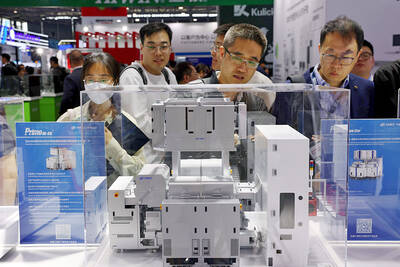Virgin Australia Group yesterday said that it is canceling its flights between Sydney and Hong Kong, just 18 months after launching the route, due to reduced demand caused by the pro-democracy protests and the 2019 novel coronavirus outbreak.
The airline began flying from Australia’s biggest city to Hong Kong in 2018, calling its China expansion a “key pillar” of its international strategy, but now admits the route proved “challenging.”
Virgin Australia chief commercial officer John MacLeod said that demand had declined following months of sometimes violent protests in Hong Kong that have been followed by the coronavirus outbreak in China, which has spread to the territory.
“While the decision to withdraw from the Hong Kong market has been a difficult one, it demonstrates our strong focus on driving greater financial discipline through our network,” MacLeod said in a statement. “Current circumstances demonstrate that Hong Kong is no longer a commercially viable route for Virgin Australia to continue operating, however international tourism remains an important part of our strategy through our other international routes and partner airlines.”
The route is to cease operating on March 2.
Australian Department of Transport data showed that Virgin Australia’s outbound Sydney to Hong Kong flights were operating at just 64 percent capacity in November last year, compared with 80 percent for Qantas Airways Ltd and Cathay Pacific Airways Ltd (國泰航空).
The announcement came as the airline faces wider financial troubles, posting an underlying pretax loss of A$71.2 million (US$48.1 million) last year after achieving an underlying profit of A$64.4 million the previous financial year.
Virgin Australia in November last year announced that it would suspend services between Melbourne and Hong Kong from Tuesday next week.

SEMICONDUCTOR SERVICES: A company executive said that Taiwanese firms must think about how to participate in global supply chains and lift their competitiveness Taiwan Semiconductor Manufacturing Co (TSMC, 台積電) yesterday said it expects to launch its first multifunctional service center in Pingtung County in the middle of 2027, in a bid to foster a resilient high-tech facility construction ecosystem. TSMC broached the idea of creating a center two or three years ago when it started building new manufacturing capacity in the US and Japan, the company said. The center, dubbed an “ecosystem park,” would assist local manufacturing facility construction partners to upgrade their capabilities and secure more deals from other global chipmakers such as Intel Corp, Micron Technology Inc and Infineon Technologies AG, TSMC said. It

EXPORT GROWTH: The AI boom has shortened chip cycles to just one year, putting pressure on chipmakers to accelerate development and expand packaging capacity Developing a localized supply chain for advanced packaging equipment is critical for keeping pace with customers’ increasingly shrinking time-to-market cycles for new artificial intelligence (AI) chips, Taiwan Semiconductor Manufacturing Co (TSMC, 台積電) said yesterday. Spurred on by the AI revolution, customers are accelerating product upgrades to nearly every year, compared with the two to three-year development cadence in the past, TSMC vice president of advanced packaging technology and service Jun He (何軍) said at a 3D IC Global Summit organized by SEMI in Taipei. These shortened cycles put heavy pressure on chipmakers, as the entire process — from chip design to mass

Germany is to establish its first-ever national pavilion at Semicon Taiwan, which starts tomorrow in Taipei, as the country looks to raise its profile and deepen semiconductor ties with Taiwan as global chip demand accelerates. Martin Mayer, a semiconductor investment expert at Germany Trade & Invest (GTAI), Germany’s international economic promotion agency, said before leaving for Taiwan that the nation is a crucial partner in developing Germany’s semiconductor ecosystem. Germany’s debut at the international semiconductor exhibition in Taipei aims to “show presence” and signal its commitment to semiconductors, while building trust with Taiwanese companies, government and industry associations, he said. “The best outcome

Semiconductor equipment billings in Taiwan are expected to double this year, as manufacturers in the industry are keen to expand production to meet strong global demand for artificial intelligence applications, according to SEMI, which represents companies in the electronics manufacturing and design supply chain. Speaking at a news conference before the opening of Semicon Taiwan trade show tomorrow, SEMI director of industry research and statistics Clark Tseng (曾瑞榆) said semiconductor equipment billings in Taiwan are expected to grow by an annual 100 percent this year, beating an earlier estimate of 70 percent growth. He said that Taiwan received a boost from a